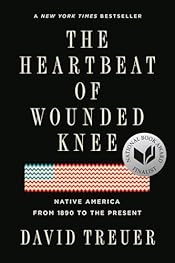 I meant to keep blogging, but my brain has other ideas. So I think I’ll just riff here a bit about things I’ve been reading about life, libraries, and information issues we face today without adding much analysis to show how they connect. Those sparks of connection seem to be hard to come by these days. So what I’ll post here in the near future, if anything, will be more along the lines of a Commonplace Book, but less intentional.
I meant to keep blogging, but my brain has other ideas. So I think I’ll just riff here a bit about things I’ve been reading about life, libraries, and information issues we face today without adding much analysis to show how they connect. Those sparks of connection seem to be hard to come by these days. So what I’ll post here in the near future, if anything, will be more along the lines of a Commonplace Book, but less intentional.
There have been a lot of stories published about how the data our phones collect could be used as a supplement to or crude replacement for the hard work of traditional contact tracing. Some objections to this are on privacy grounds, and on distrust of big business and/or big government to not abuse our diminishing trust. Others point out too many people – especially the most vulnerable people already disproportionately harmed by this virus – will be rendered invisible. And knowing who was in contact with whom is useless if we don’t have tests and the public health infrastructure to actually do anything with the information. And, of course, the privacy issues don’t stop with contact tracing. Some things I’ve been reading:
“Google and Apple’s Covid-19 Tracking System Can’t Save Lives on Its Own” by Nicole Westman (The Verge)
“The Expansion of Mass Surveillance to Stop Coronavirus Should Worry Us All” by Veena Dubal (The Guardian)
“Will the Pandemic Usher in an Era of Mass Surveillance in Higher Education?” by Alexander C. Kafka (The Chronicle of Higher Education)
In the realm of disinformation and the viral spread of bad information, we have a new word: infodemic. Some of what’s going on mirrors the misuse of social channels by conmen with right-wing politics that we saw leading up to the US presidential election and Brexit, especially with some creeps from Minnesota trying to make bank on gun fetishism mixed with Trumpism to “liberate” Minnesota and other swing states from common sense and social responsibility. (You’ll pry Minnesotans’ social responsibility from our cold, dead hands, doofuses). It’s a good time to practice the information hygiene that’s a kind of hand-washing routine: stop before you share, investigate the source, check your emotions, etc. – Mike Caulfield has been telling us how to do this for a while now. Good habits for everyday use!
“Social Media Companies Must Flatten the Curve of Misinformation” by Joan Donovan (Nature)
“Comic: Fake News Can Be Deadly. Here’s How to Stop It.” by Connie Hanzhang Jin (MPR) (I love this.)
And other random things like …
… this fascinating history of how payment cards have been and are being used to map our lives.
“Plastic Surveillance: Payment Cards and the History of Transactional Data, 1888 to Present” by Josh Lauer” (Big Data and Society)
Modern payment cards encompass a bewildering array of consumer technologies, from credit and debit cards to stored-value and loyalty cards. But what unites all of these financial media is their connection to recordkeeping systems. Each swipe sends data hurtling through invisible infrastructures to verify accounts, record purchase details, exchange funds, and update balances. With payment cards, banks and merchants have been able to amass vast archives of transactional data. This information is a valuable asset in itself. It can be used for in-house data analytics programs or sold as marketing intelligence to third parties. This research examines the development of payment cards in the United States from the late 19th century to present, drawing attention to their fundamental relationship to identification, recordkeeping, and data mining. The history of payment cards, I argue, is not just a history of financial innovation and computing; it is also a history of Big Data and consumer surveillance. This history, moreover, provides insight into the growth of transactional data and the datafication of money in the digital economy.
 This excellent book about Native Americans and how to think about their history, our tendency to categorize them as tragic and mostly extinct, and their resilience today. I enjoyed learning (and unlearning) while reading The Heartbeat of Wounded Knee: Native America from 1890 to the Present by David Treuer,
This excellent book about Native Americans and how to think about their history, our tendency to categorize them as tragic and mostly extinct, and their resilience today. I enjoyed learning (and unlearning) while reading The Heartbeat of Wounded Knee: Native America from 1890 to the Present by David Treuer,
Also, a novel about the AIDS crisis in Chicago in the 1980s and how it shaped a woman whose brother died young and her fraught relationship with her daughter years later – I found The Great Believers by Rebecca Makkai absorbing. Our current epidemic is so different, though it also chooses its victims disproportionately in communities we treat badly.
And one of the best books I’ve read in a long time, so smart, so thought-provoking, and so full of allusions that tie literature and reading and the brutal politics of our fascist immigration system together, Valeria Luiselli’s The Lost Children Archive.
I found all of these books through my (physically) closed library. As a tweet from Eric Klinenberg pointed out, libraries remain vital social infrastructure. See “Libraries Face More Demand Than During the Great Recession” by Cailin Crowe (Smart Cities Dive).